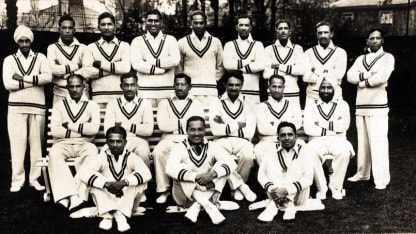
The International Cricket Council (ICC) is the global governing body for the sport of cricket. Its formation and development reflect the evolution of cricket as an international sport. Here’s an overview of how international cricket and the ICC were formed:
Early International Cricket
1. First International Match (1844)**: The first recognized international cricket match was played between Canada and the United States in 1844.

2. England vs. Australia (1877): The first Test match, considered the beginning of international cricket, was played between England and Australia in Melbourne in 1877.
Formation of Imperial Cricket Conference
3. Imperial Cricket Conference (1909)**: Representatives fr. om England, Australia, and South Africa met at Lord's in London to form the Imperial Cricket Conference. The aim was to regulate matches between these countries and address issues related to the game’s governance.
Expansion and Renaming
4. Inclusion of More Countries: Over the years, more countries joined the conference, including the West Indies, New Zealand, India, and Pakistan. These additions reflected the growing popularity of cricket in the British Empire and beyond.
5. Renaming to International Cricket Conference (1965): As more non-imperial countries joined, the organization was renamed the International Cricket Conference, reflecting a more global perspective.

Modern International Cricket Council
6. Renaming to International Cricket Council (1989): The organization was again renamed to the International Cricket Council to better represent its role as the global governing body of cricket.
7. Globalization and Expansion: The ICC began focusing on expanding the game globally, promoting cricket in countries outside the traditional cricket-playing nations. This included granting full membership to countries like Sri Lanka, Zimbabwe, and Bangladesh and promoting associate and affiliate memberships to foster the game's growth.
Structure and Governance
8. ICC Headquarters: Initially based at Lord's in London, the ICC headquarters moved to Dubai, UAE, in 2005 to be more centrally located for its diverse membership.
9. Governance and Roles: The ICC oversees international matches, sets the rules for the game (in coordination with the Marylebone Cricket Club), organizes major international tournaments like the Cricket World Cup, T20 World Cup, and Champions Trophy, and works to promote the game globally.
Major International Tournaments
10. Cricket World Cup: The ICC organized the first Cricket World Cup in 1975 in England, establishing it as the premier event in One Day International (ODI) cricket.
11. T20 World Cup: Responding to the popularity of the shorter format, the ICC introduced the T20 World Cup in 2007.

Development Programs
12. Development Programs: The ICC runs numerous development programs aimed at nurturing the game in associate and affiliate countries, helping them progress to higher levels of competition.
Challenges and Evolution
13. Challenges: The ICC has faced various challenges, including managing the balance between the interests of traditional powerhouses and emerging cricket nations, addressing issues like corruption and match-fixing, and adapting to the changing landscape of modern sports.
The ICC’s journey from a small conference of cricket-playing nations to the global governing body reflects the sport’s evolution and growing international appeal. The ICC continues to play a crucial role in promoting and regulating cricket worldwide.








 untries gathered in Rome to negotiate the establishment of the ICC. The conference culminated in the adoption of the Rome Statute on July 17, 1998, which serves as the court's founding treaty.
untries gathered in Rome to negotiate the establishment of the ICC. The conference culminated in the adoption of the Rome Statute on July 17, 1998, which serves as the court's founding treaty.